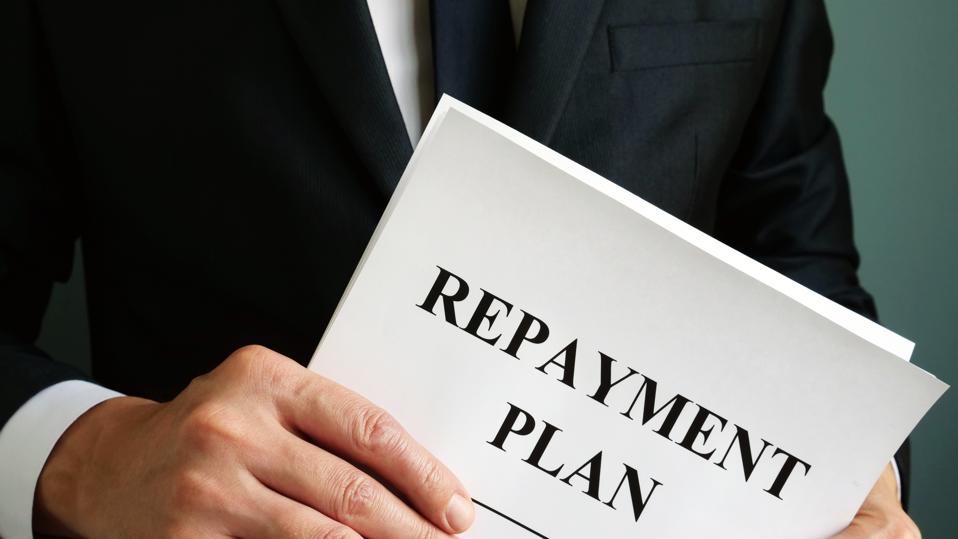getty
Covid ruined everything. It abruptly halted a humming economy. Worse, it cost many their jobs as state governments shuttered entire industries.
Congress, in an attempt to stave off immediate cash flow short-falls, passed the CARES Act hoping to help those who lost income as a result of these shut downs. As with all good intentions, if you take advantage of one portion of this law, the side effects may harm your retirement.
In realizing many people are asset rich and cash poor, The CARES Act allows you to withdraw money from your 401(k). This makes assets set aside for your future retirement available in the case where you need the cash to pay for current living expenses.
Better yet, Congress waived the early penalty that’s normally incurred when you take retirement savings money before you reach the age 59½.
What could go wrong?
Plenty.
“While the withdrawal is exempt from the 10% penalty due to the CARES Act, there are still taxes due on the money that is withdrawn,” says Kathleen Owens, Managing Member and Financial Adviser at Aurora Financial Planning & Investment Management LLC in the San Francisco Bay Area. “The amount will be considered as taxable income. The CARES Act allows the tax burden to be spread out over a period of up to three tax years, unless you decide to put the money you withdrew back into your account. Then you can amend your taxes for such a change.”
This is where you might find things getting tricky. Not only do you avoid the penalty, but you’re no longer required to withhold the standard 20%. It really sounds like free money. It’s not. Failure to repay the money within the three-year window will make you liable for the taxes you would normally owe.
“The IRS has stated, not so clearly so far, that penalties will become due past the window,” says Brian Halbert, Retirement Advisor at WD Pensionmark in Austin, Texas. “What exactly they are, or could be, is unclear to many participants. With the tax schedule presumed to increase, it makes sense to pay these off as quickly as possible.”
You should be aware that there are specific requirements you must follow to avoid paying the tax.
“You can repay the loan in installments or as one lump sum within the three-year window,” says Dabney Baum, a financial advisor at Baum Wealth Advisors in Boston. “If the money is not paid back you will pay income tax on it. This is NOT free money. This is money with IRS strings attached.”
Rest assured, though, you can avoid taxes and other potential penalties if you return the money before the window closes. Given the potential size of these temporary withdrawals, the size of the tax can be considerable.
“If a withdrawal is qualified under the rules of the CARES Act, it can be repaid to the 401(k) before three years,” says Ryan Shuchman, Partner of Cornerstone Financial Services in Southfield, Michigan. “Repayment avoids substantial income taxes that will otherwise apply. Say you withdraw and spend $100,000. If not repaid before year three, you now may face a tax bill of $20,000 or more.”
You might think tax avoidance is your primary concern, but there’s a bigger reason for you to repay any money you take out of your 401(k). Every minute that money is out of your retirement savings means another minute that money isn’t making more money for your retirement.
“Lower balances mean less capital to produce income in retirement,” says Dr. Guy Baker, Founder of Wealth Teams Alliance in Irvine, California. “It would be great to be able to repay the withdrawals, but it is unlikely many will be able to afford to do so. The better way is to increase or at least maintain the current level of savings.”
The problem with failure to repay any 401(k) has repercussions beyond whether it is a CARES Act withdrawal or not.
“According to Deloitte, a typical 401(k) borrower who defaults on a 401(k) loan loses $300,000 of financial security at retirement because of taxes, penalties and foregone returns on their investment,” says Pam Krueger, Founder and CEO of Wealthramp in Tiburon, California. “Those who take hardship withdrawals and don’t replace that money lose out on all the compounded tax deferred growth benefits they’d realize over the decades which could easily be the biggest driver of their future wealth.”
In the end, you have two compelling reasons to repay your CARES Act withdrawal as soon as possible. Without doing so, “you will have to pay taxes plus you will lose the future benefit of compound investment gains,” says Melody Juge, Senior Partner and Founder at Life Income Management in Western North Carolina.
Don’t allow the spirit of good intentions to pave your road to a retirement that will be short of funds.
